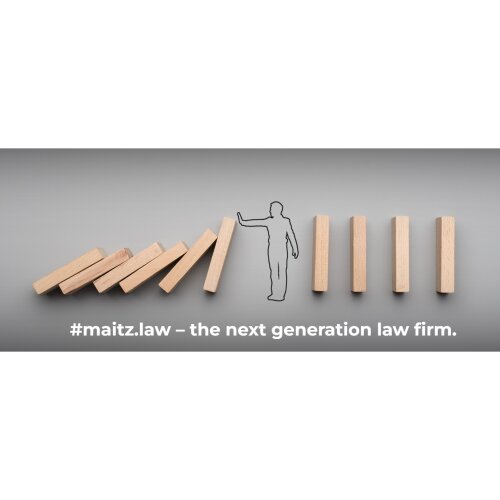Best Elder Law Lawyers in Ruggell
Share your needs with us, get contacted by law firms.
Free. Takes 2 min.
List of the best lawyers in Ruggell, Liechtenstein
About Elder Law in Ruggell, Liechtenstein
Elder Law in Ruggell, Liechtenstein, focuses on the legal needs of older adults, encompassing a wide range of issues including estate planning, guardianship, healthcare, and financial planning. With a growing elderly population, the focus has shifted to ensuring that seniors’ needs are met in a legal context, safeguarding their rights, and providing a framework for addressing various aspects of aging.
Why You May Need a Lawyer
Legal assistance may be required in several situations related to Elder Law, including:
- Estate Planning: Creating or updating wills, trusts, and other documents to manage one's estate and ensure assets are distributed according to one's wishes.
- Guardianship: Appointing a guardian to make decisions on behalf of an elderly person who is no longer capable of making decisions independently.
- Healthcare Decisions: Drafting advanced directives, living wills, or medical powers of attorney.
- Financial Management: Addressing issues related to pensions, benefits, and protecting against financial exploitation.
- Care Arrangements: Legal advice on long-term care options, nursing home contracts, and home care services.
Local Laws Overview
Elder Law in Ruggell, Liechtenstein, is shaped by a combination of local customs, state regulations, and international treaties. Key aspects include:
- Inheritance Law: Regulations governing the distribution of an individual's estate upon their death.
- Guardianship Law: Legal mechanisms to appoint guardians for elderly individuals who are unable to take care of their personal affairs.
- Healthcare Law: Policies related to the provision of medical care and the rights of patients.
- Social Security Law: Rules concerning pensions, disability benefits, and other forms of social security.
- Anti-Financial Exploitation Rules: Measures to protect seniors from fraud and financial abuse.
Frequently Asked Questions
1. What is the role of a power of attorney in Elder Law?
A power of attorney (POA) is a legal document that grants another person the authority to make decisions on your behalf, particularly when you are no longer able to do so. In Elder Law, a POA is crucial for managing finances, healthcare, and personal affairs.
2. How can I protect my elderly relative from financial exploitation?
To protect against financial exploitation, consider setting up a power of attorney, regularly monitor bank accounts, and consult with a lawyer to establish protections in their financial management plans.
3. What is an advanced directive?
An advanced directive is a legal document outlining a person’s wishes regarding medical treatment if they become unable to communicate these decisions. It includes living wills and healthcare powers of attorney.
4. How do I initiate guardianship for an elderly person?
To initiate guardianship, you need to file a petition with the local court, providing evidence that the person is incapable of managing their own affairs. Legal representation is highly recommended to navigate this process.
5. What are the benefits of a living trust?
A living trust can help manage assets during one’s lifetime and ensure a smooth transfer of property upon death, often avoiding probate and providing more privacy than a will.
6. How are disputes over inheritance resolved?
Inheritance disputes are typically resolved through negotiation, mediation, or court proceedings, depending on the complexity and nature of the conflict. Professional legal advice is crucial in these cases.
7. What long-term care options are available in Ruggell?
Options include in-home care services, assisted living facilities, and nursing homes. Each option has different legal considerations, such as contracts and residents' rights, which should be reviewed with a lawyer.
8. Can I change my will after it's been made?
Yes, you can change your will any time, as long as you are mentally competent. This is usually done through a codicil or by creating a new will.
9. How does the Liechtenstein social security system support elderly citizens?
The social security system provides pensions, disability benefits, and various forms of healthcare support. Eligibility and benefits can be complex, so legal advice can ensure you receive all entitled benefits.
10. What should I do if I suspect elder abuse?
If you suspect elder abuse, it's important to contact local authorities immediately, seek medical assistance if needed, and consult a lawyer to discuss protective measures and legal actions.
Additional Resources
Here are some resources that can be helpful:
- Government Social Services Office: Provides information on pensions, benefits, and elder care services.
- Local Eldercare Facilities: Offer services and guidance on long-term care options.
- Non-Profit Organizations: Such as those focused on elder rights and protection against abuse.
- Legal Aid Services: Offer free or low-cost legal counsel for those who qualify.
Next Steps
If you need legal assistance in Elder Law, consider the following steps:
- Consultation: Schedule a consultation with a lawyer specializing in Elder Law.
- Documentation: Gather relevant documents such as wills, medical records, financial statements, and identification.
- Questions: Prepare a list of questions and concerns to discuss with your lawyer.
- Follow-up: Follow your lawyer’s advice and stay proactive in managing your or your loved one's legal needs.
By understanding the importance and scope of Elder Law, you can better navigate the complexities of aging and ensure the rights and well-being of elderly individuals are adequately protected.
Lawzana helps you find the best lawyers and law firms in Ruggell through a curated and pre-screened list of qualified legal professionals. Our platform offers rankings and detailed profiles of attorneys and law firms, allowing you to compare based on practice areas, including Elder Law, experience, and client feedback.
Each profile includes a description of the firm's areas of practice, client reviews, team members and partners, year of establishment, spoken languages, office locations, contact information, social media presence, and any published articles or resources. Most firms on our platform speak English and are experienced in both local and international legal matters.
Get a quote from top-rated law firms in Ruggell, Liechtenstein — quickly, securely, and without unnecessary hassle.
Disclaimer:
The information provided on this page is for general informational purposes only and does not constitute legal advice. While we strive to ensure the accuracy and relevance of the content, legal information may change over time, and interpretations of the law can vary. You should always consult with a qualified legal professional for advice specific to your situation.
We disclaim all liability for actions taken or not taken based on the content of this page. If you believe any information is incorrect or outdated, please contact us, and we will review and update it where appropriate.









